人教版(2019)英语高中选择性必修第一册 Unit 4 Assessing Your Progress(14张PPT)
文档属性
| 名称 | 人教版(2019)英语高中选择性必修第一册 Unit 4 Assessing Your Progress(14张PPT) | 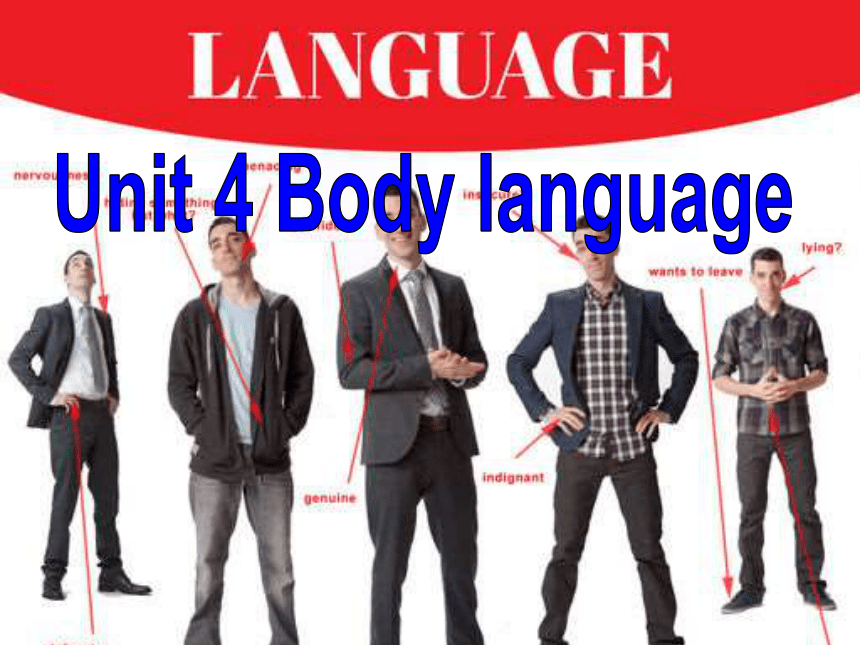 | |
| 格式 | zip | ||
| 文件大小 | 687.1KB | ||
| 资源类型 | 试卷 | ||
| 版本资源 | 人教版(2019) | ||
| 科目 | 英语 | ||
| 更新时间 | 2021-10-05 16:52:51 | ||
图片预览

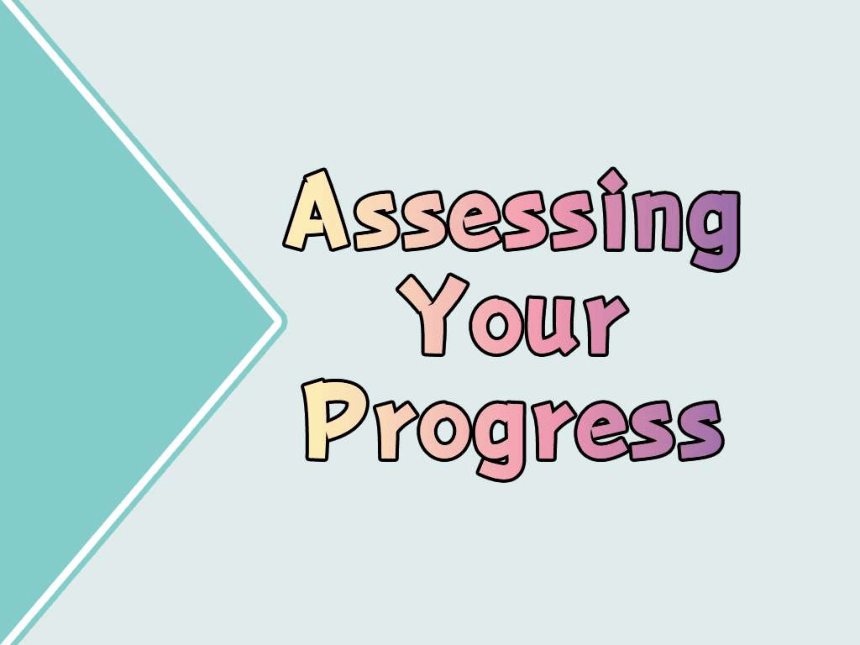
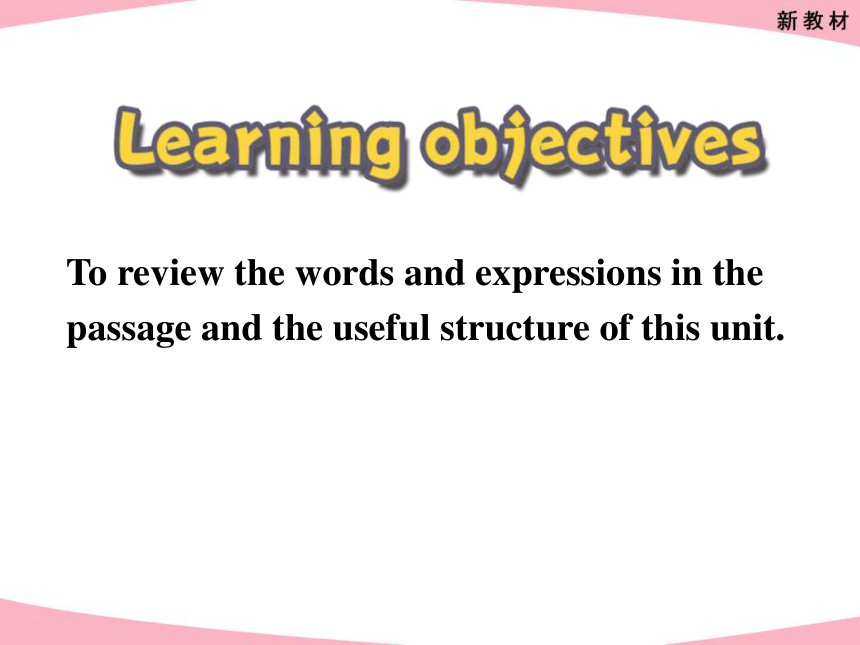
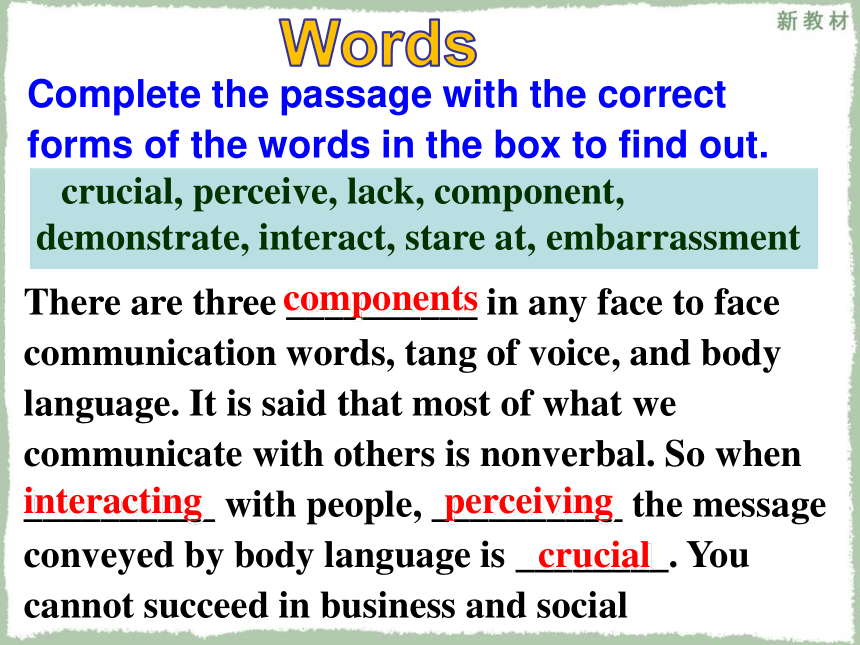
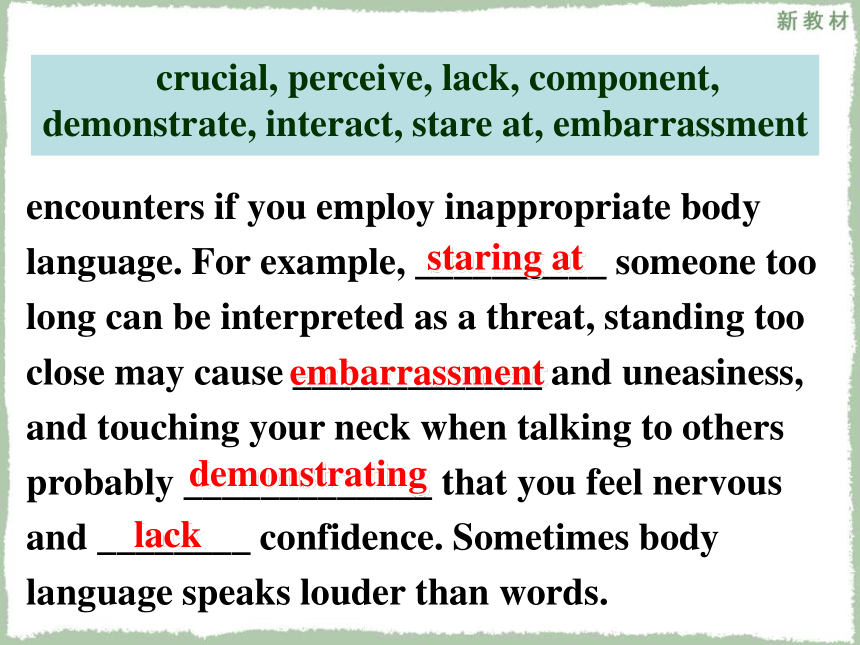
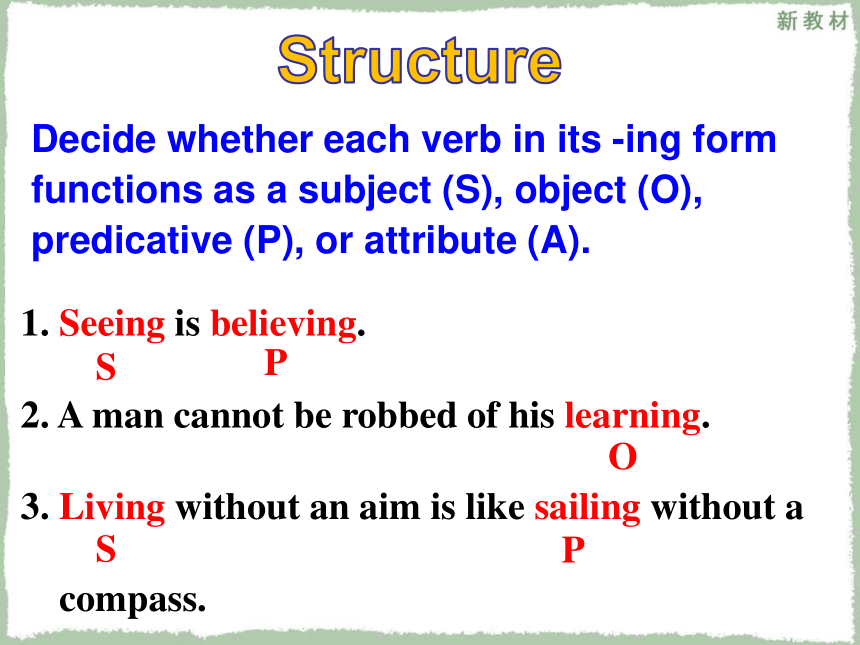
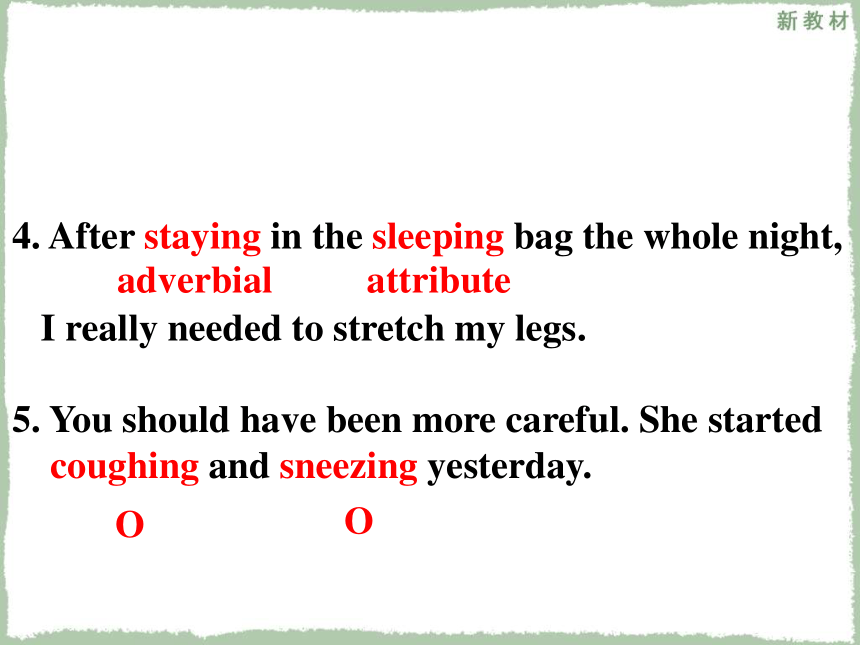
文档简介
(共14张PPT)
Unit
4
Body
language
To
review
the
words
and
expressions
in
the
passage
and
the
useful
structure
of
this
unit.
Complete
the
passage
with
the
correct
forms
of
the
words
in
the
box
to
find
out.
There
are
three
__________
in
any
face
to
face
communication
words,
tang
of
voice,
and
body
language.
It
is
said
that
most
of
what
we
communicate
with
others
is
nonverbal.
So
when
__________
with
people,
__________
the
message
conveyed
by
body
language
is
________.
You
cannot
succeed
in
business
and
social
crucial,
perceive,
lack,
component,
demonstrate,
interact,
stare
at,
embarrassment
components
interacting
perceiving
crucial
Words
encounters
if
you
employ
inappropriate
body
language.
For
example,
__________
someone
too
long
can
be
interpreted
as
a
threat,
standing
too
close
may
cause
_____________
and
uneasiness,
and
touching
your
neck
when
talking
to
others
probably
_____________
that
you
feel
nervous
and
________
confidence.
Sometimes
body
language
speaks
louder
than
words.
staring
at
embarrassment
demonstrating
lack
crucial,
perceive,
lack,
component,
demonstrate,
interact,
stare
at,
embarrassment
1.
Seeing
is
believing.
2.
A
man
cannot
be
robbed
of
his
learning.
3.
Living
without
an
aim
is
like
sailing
without
a
compass.
Decide
whether
each
verb
in
its
-ing
form
functions
as
a
subject
(S),
object
(O),
predicative
(P),
or
attribute
(A).
S
P
O
S
P
Structure
4.
After
staying
in
the
sleeping
bag
the
whole
night,
I
really
needed
to
stretch
my
legs.
5.
You
should
have
been
more
careful.
She
started
coughing
and
sneezing
yesterday.
adverbial
attribute
O
O
6.
One
may
agree
that
in
a
conversation,
listening
is
as
powerful
as
loving.
7.
After
a
long
day
she
looked
forward
to
putting
her
feet
up
with
a
nice
cup
of
tea.
8.
Isabella
really
put
her
back
into
learning
Chinese.
She
wants
to
start
living
in
China
in
two
or
three
months.
9.
Fishing
in
troubled
waters
may
cause
even
more
problems.
S
P
O
O
O
S
动词-ing形式在句中可充当主语、宾语、表语、定语、宾语补足语和状语等成分。
一、动词-ing形式作宾语
1.
有些动词后常跟动词-ing形式作宾语,常见的这类动词有:admit,
allow,
appreciate,
avoid,
enjoy,
consider,
dislike,
deny,
mind,
miss,
finish,
keep,
imagine,
risk,
practice,
suggest等。
2.
介词后可接动词-ing形式作宾语。
二、动词-ing形式作表语
动词-ing形式作表语可说明主语“是什么”,主语与表语常可互换。
三、动词-ing形式作定语
动词-ing形式在句中可用作定语。其逻辑主语并不是它所修饰的名词。
Which
body
language
in
this
unit
do
you
use
most
often
Does
it
have
the
same
meaning
as
in
the
text
What
do
you
think
you
could
do
to
communicate
better
with
other
people
Do
you
think
you
will
be
able
to
tell
more
from
reading
others’
body
language
from
now
on
Reflecting
What
problems
did
you
or
your
friends
have
in
studying
this
unit
How
did
you
solve
them
What
advice
did
you
give
each
other
Overall,
I
thought
this
unit
was
◎interesting
◎useful
◎so-so
◎difficult.
Revise
the
content
of
this
unit.
Unit
4
Body
language
To
review
the
words
and
expressions
in
the
passage
and
the
useful
structure
of
this
unit.
Complete
the
passage
with
the
correct
forms
of
the
words
in
the
box
to
find
out.
There
are
three
__________
in
any
face
to
face
communication
words,
tang
of
voice,
and
body
language.
It
is
said
that
most
of
what
we
communicate
with
others
is
nonverbal.
So
when
__________
with
people,
__________
the
message
conveyed
by
body
language
is
________.
You
cannot
succeed
in
business
and
social
crucial,
perceive,
lack,
component,
demonstrate,
interact,
stare
at,
embarrassment
components
interacting
perceiving
crucial
Words
encounters
if
you
employ
inappropriate
body
language.
For
example,
__________
someone
too
long
can
be
interpreted
as
a
threat,
standing
too
close
may
cause
_____________
and
uneasiness,
and
touching
your
neck
when
talking
to
others
probably
_____________
that
you
feel
nervous
and
________
confidence.
Sometimes
body
language
speaks
louder
than
words.
staring
at
embarrassment
demonstrating
lack
crucial,
perceive,
lack,
component,
demonstrate,
interact,
stare
at,
embarrassment
1.
Seeing
is
believing.
2.
A
man
cannot
be
robbed
of
his
learning.
3.
Living
without
an
aim
is
like
sailing
without
a
compass.
Decide
whether
each
verb
in
its
-ing
form
functions
as
a
subject
(S),
object
(O),
predicative
(P),
or
attribute
(A).
S
P
O
S
P
Structure
4.
After
staying
in
the
sleeping
bag
the
whole
night,
I
really
needed
to
stretch
my
legs.
5.
You
should
have
been
more
careful.
She
started
coughing
and
sneezing
yesterday.
adverbial
attribute
O
O
6.
One
may
agree
that
in
a
conversation,
listening
is
as
powerful
as
loving.
7.
After
a
long
day
she
looked
forward
to
putting
her
feet
up
with
a
nice
cup
of
tea.
8.
Isabella
really
put
her
back
into
learning
Chinese.
She
wants
to
start
living
in
China
in
two
or
three
months.
9.
Fishing
in
troubled
waters
may
cause
even
more
problems.
S
P
O
O
O
S
动词-ing形式在句中可充当主语、宾语、表语、定语、宾语补足语和状语等成分。
一、动词-ing形式作宾语
1.
有些动词后常跟动词-ing形式作宾语,常见的这类动词有:admit,
allow,
appreciate,
avoid,
enjoy,
consider,
dislike,
deny,
mind,
miss,
finish,
keep,
imagine,
risk,
practice,
suggest等。
2.
介词后可接动词-ing形式作宾语。
二、动词-ing形式作表语
动词-ing形式作表语可说明主语“是什么”,主语与表语常可互换。
三、动词-ing形式作定语
动词-ing形式在句中可用作定语。其逻辑主语并不是它所修饰的名词。
Which
body
language
in
this
unit
do
you
use
most
often
Does
it
have
the
same
meaning
as
in
the
text
What
do
you
think
you
could
do
to
communicate
better
with
other
people
Do
you
think
you
will
be
able
to
tell
more
from
reading
others’
body
language
from
now
on
Reflecting
What
problems
did
you
or
your
friends
have
in
studying
this
unit
How
did
you
solve
them
What
advice
did
you
give
each
other
Overall,
I
thought
this
unit
was
◎interesting
◎useful
◎so-so
◎difficult.
Revise
the
content
of
this
unit.
